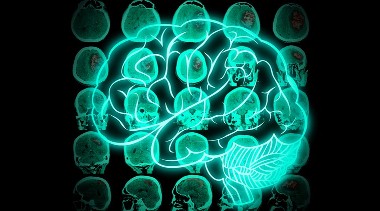A team of researchers has developed a non-invasive brain scanner which can predict weight loss success based on the brain volume of the elderly. According to the study published in the journal Obesity, scientists at the Wake Forest Baptist Medical Center have found a way to predict who will be successful in their weight-loss efforts with a quick, non-invasive brain scan. “A simple test that can predict intentional weight loss success using structural brain characteristics could ultimately be used to tailor treatment for patients,” said Jonathan Burdette, Professor at the Wake Forest School of Medicine, at Winston-Salem, North Carolina, in the US.
“For example, people identified at high risk for failure might benefit from intensive treatment and close guidance. People identified as having a high probability for success might best respond to less intensive treatment,” Burdette added.
In the study, the researchers observed 52 participants, aged 60 to 79, who were overweight or obese (BMI greater than 28 and less than 42) and had a history of either cardiovascular disease or metabolic syndrome.
All participants had a baseline MRI scan and then were randomised to one of three groups — diet only, diet plus aerobic exercise training or diet plus resistance exercise training. The goal of the 18-month diet and exercise programme was a weight loss of seven to 10 per cent of body mass.
Basic brain structure information garnered from the MRIs was classified using a support vector machine, a type of computerised predictive algorithm. Predictions were based on baseline brain grey and white matter volume from the participants’ MRIs and compared to the study participants’ actual weight loss after the 18 months.
Brain gray matter volume provided higher prediction accuracy compared with white matter and the combination of the two outperformed either one alone, the study suggested.
- Lanka’s post-attacks nightlife loses fizz
- On a film clip from The Godfather Part II
- Google unveils Pixel 3a, 3a XL
- Kavinda wants govt to acquire sharia university
- Federer near flawless in clay comeback
- Ignoring security warnings led to Easter Sunday attacks – Kiriella
- Blast in Lahore kills at least four, wounds 24
- Govt says cannot keep schools closed
- PM wants sophisticated technology to face global terror
- Facebook building privacy-focused social platform, says Mark Zuckerberg


Leave a comment